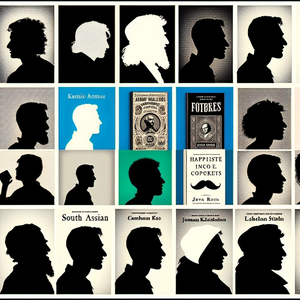Creating Memorable Guest Experiences Through Personalization

Personalization in hospitality transcends the simple act of remembering a guest's name; it involves understanding and catering to each guest's unique preferences and needs. A study conducted by Deloitte revealed that 36% of consumers are willing to pay more for a superior customer experience, underscoring the importance of forging strong connections with guests. For concierges, this entails engaging in meaningful conversations, asking insightful questions, and providing tailored recommendations that resonate with individual guests.
Techniques for Personalization
Engaging guests in genuine conversations is the cornerstone of creating personalized experiences. Concierges should be adept at active listening, taking note of guests’ preferences and interests. For example, if a guest shares a passion for art, the concierge can recommend local galleries or upcoming exhibitions, enhancing the guest's stay with relevant activities.
Utilizing Guest Profiles
Many modern hotels leverage customer relationship management (CRM) tools to maintain detailed profiles of guests. This data allows concierges to anticipate needs and provide services tailored to individual preferences. For instance, if a guest frequently orders a specific type of wine, the concierge can ensure it is available upon their arrival, creating a welcoming atmosphere.
Customized Recommendations
Concierges can elevate the guest experience by offering personalized recommendations based on individual interests. For example, a family checking in with young children might appreciate suggestions for family-friendly attractions, while a couple celebrating an anniversary could benefit from romantic dining options or spa services curated for their special occasion.
Follow-Up and Feedback
Personalization should extend beyond the check-in process. Following up with guests during their stay can significantly enhance their experience. A concierge might check in after a guest dines at a recommended restaurant to inquire about their experience. This not only demonstrates that the hotel values guest feedback but also provides insights that can enhance future stays for other guests.
Examples of Exceptional Personalization
Several hotels have become benchmarks for personalized guest experiences: The Ritz-Carlton employs a system called "Mystique," which allows concierges to record guest preferences. Airbnb hosts excel in personalization by providing unique insights that cater to individual guests. The Four Seasons hotels empower concierges to create memorable moments, such as arranging surprise birthday celebrations.
The Impact of Personalization on Loyalty
The advantages of personalization extend far beyond immediate guest satisfaction. When guests feel valued and understood, they are more likely to return and recommend the hotel to others. A study by Accenture found that 91% of consumers are more inclined to engage with brands that offer relevant offers and recommendations.
In an industry characterized by fierce competition and evolving guest expectations, personalization emerges as a vital strategy for enhancing the guest experience. Front desk concierges possess a unique opportunity to craft memorable moments that resonate with guests long after their stay. By implementing techniques such as active listening, utilizing guest profiles, providing customized recommendations, and following up with guests, concierges can elevate the hospitality experience to unprecedented heights.
Guest Experience Manager
Luxury hotels, boutique resorts, and high-end travel companies
Core Responsibilities
Oversee the guest experience strategy to ensure personalized service delivery across all touchpoints.
Collaborate with various departments to implement guest feedback and tailor offerings to enhance satisfaction.
Required Skills
Strong interpersonal and communication skills to engage with guests and staff alike.
Proficiency in customer relationship management (CRM) tools to analyze guest data and preferences.
Concierge Specialist
Hotels, resorts, and high-end travel services
Core Responsibilities
Provide tailored recommendations and arrangements for guests, such as dining reservations, activity bookings, and transportation.
Maintain an extensive knowledge of local attractions and services to offer personalized insights and enhance the guest experience.
Required Skills
Exceptional customer service skills with a flair for hospitality and problem-solving.
Familiarity with local and regional attractions, events, and cultural hotspots.
Hospitality CRM Analyst
Hotel chains, travel agencies, and hospitality consulting firms
Core Responsibilities
Analyze guest data to identify trends and preferences, informing personalized marketing and guest service strategies.
Collaborate with the marketing team to develop targeted campaigns that resonate with specific guest demographics.
Required Skills
Strong analytical skills with experience in data analysis tools and CRM software.
Understanding of customer segmentation and personalized marketing techniques.
Front Office Operations Manager
Major hotel brands, resorts, and luxury lodges
Core Responsibilities
Manage front desk operations to ensure seamless guest check-in and check-out experiences.
Train and mentor front desk staff on the importance of personalized service and guest interaction techniques.
Required Skills
Proven leadership skills with experience in hospitality management.
Ability to implement operational processes that enhance guest satisfaction and loyalty.
Event and Experience Coordinator
Hotels, event planning companies, and destination management organizations
Core Responsibilities
Plan and execute personalized events and experiences for guests, such as weddings, corporate retreats, and special celebrations.
Work closely with clients to customize offerings based on their specific needs, preferences, and budgets.
Required Skills
Strong organizational and project management skills, with attention to detail.
Excellent communication skills to effectively liaise with clients and vendors.


